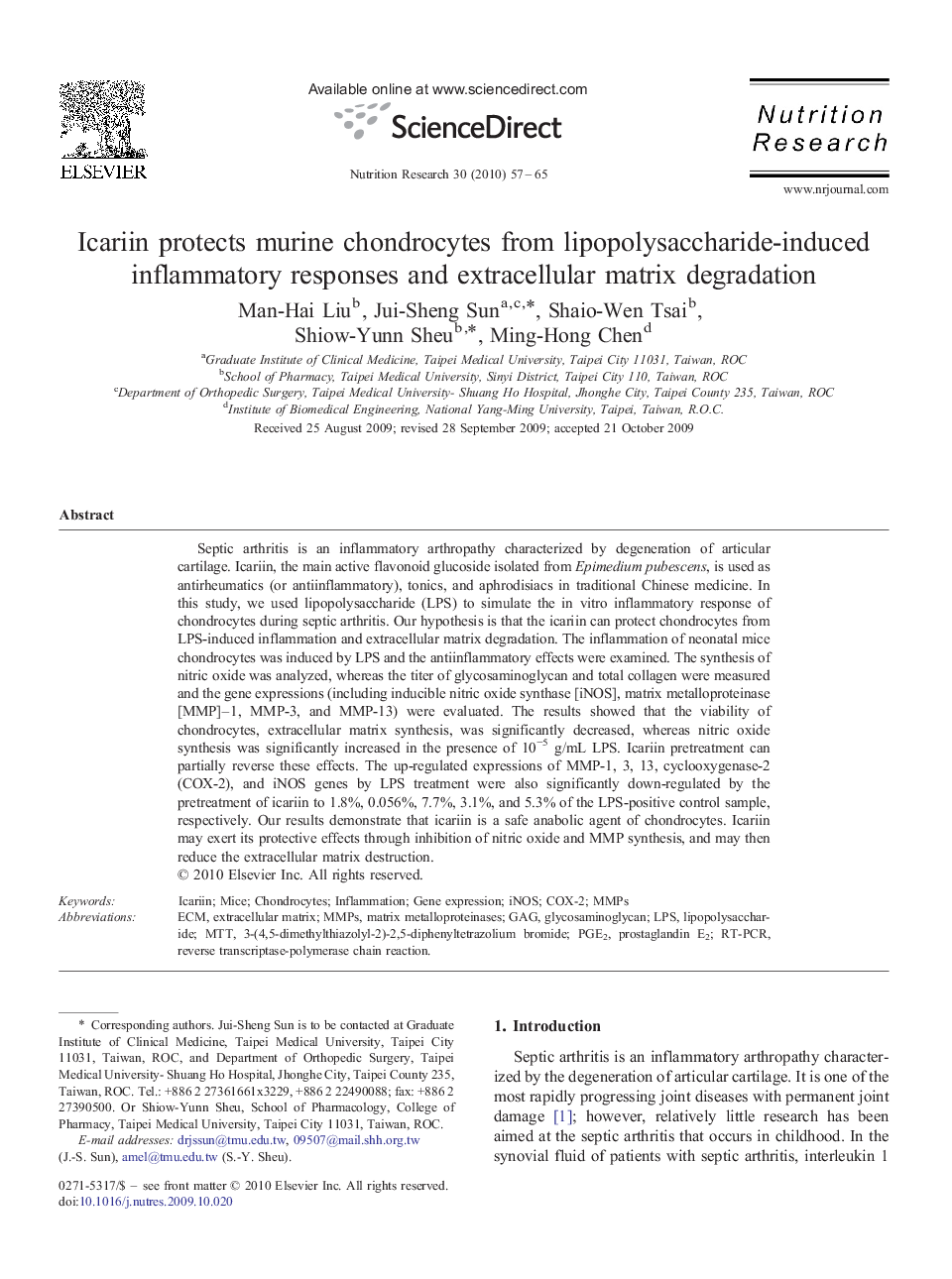| Article ID | Journal | Published Year | Pages | File Type |
|---|---|---|---|---|
| 2809370 | Nutrition Research | 2010 | 9 Pages |
Septic arthritis is an inflammatory arthropathy characterized by degeneration of articular cartilage. Icariin, the main active flavonoid glucoside isolated from Epimedium pubescens, is used as antirheumatics (or antiinflammatory), tonics, and aphrodisiacs in traditional Chinese medicine. In this study, we used lipopolysaccharide (LPS) to simulate the in vitro inflammatory response of chondrocytes during septic arthritis. Our hypothesis is that the icariin can protect chondrocytes from LPS-induced inflammation and extracellular matrix degradation. The inflammation of neonatal mice chondrocytes was induced by LPS and the antiinflammatory effects were examined. The synthesis of nitric oxide was analyzed, whereas the titer of glycosaminoglycan and total collagen were measured and the gene expressions (including inducible nitric oxide synthase [iNOS], matrix metalloproteinase [MMP]–1, MMP-3, and MMP-13) were evaluated. The results showed that the viability of chondrocytes, extracellular matrix synthesis, was significantly decreased, whereas nitric oxide synthesis was significantly increased in the presence of 10−5 g/mL LPS. Icariin pretreatment can partially reverse these effects. The up-regulated expressions of MMP-1, 3, 13, cyclooxygenase-2 (COX-2), and iNOS genes by LPS treatment were also significantly down-regulated by the pretreatment of icariin to 1.8%, 0.056%, 7.7%, 3.1%, and 5.3% of the LPS-positive control sample, respectively. Our results demonstrate that icariin is a safe anabolic agent of chondrocytes. Icariin may exert its protective effects through inhibition of nitric oxide and MMP synthesis, and may then reduce the extracellular matrix destruction.
